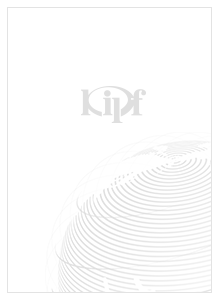상세 내용
This study analyzes carbon tax issues from effectiveness of tax changes to economic effect of carbon taxation. Industry and household energy demands show moderate responsiveness on price change. Especially, current deterioration of energy intensity of industry sector was significantly affected by price decrease. Considering the European experiences on carbon tax, we need to increase horizontal equity of energy taxation. Before the implementation of carbon emission trading system, taxation on coal and electricity should be strengthened since they are exempted from current energy taxation. This will be the 1st step of carbon taxation. 2nd step should be coordinated taxation with emission trading system. 2nd step would impose carbon tax on sectors that are not included on carbon trading system. EU ETS(Emission Trading System) price will be a good proxy for the carbon taxation level. We consider multiple taxation levels based on EU ETS price and income difference between EU and Korea. Computable general equilibrium model is used for simulation. The results show that GDP level would be lower under carbon tax. However, in the long run, carbon tax would stimulate growth and attain higher GDP level. For the revenue recycling aspects, investment on R&D activity shows higher GDP level than household subsidy scheme.

